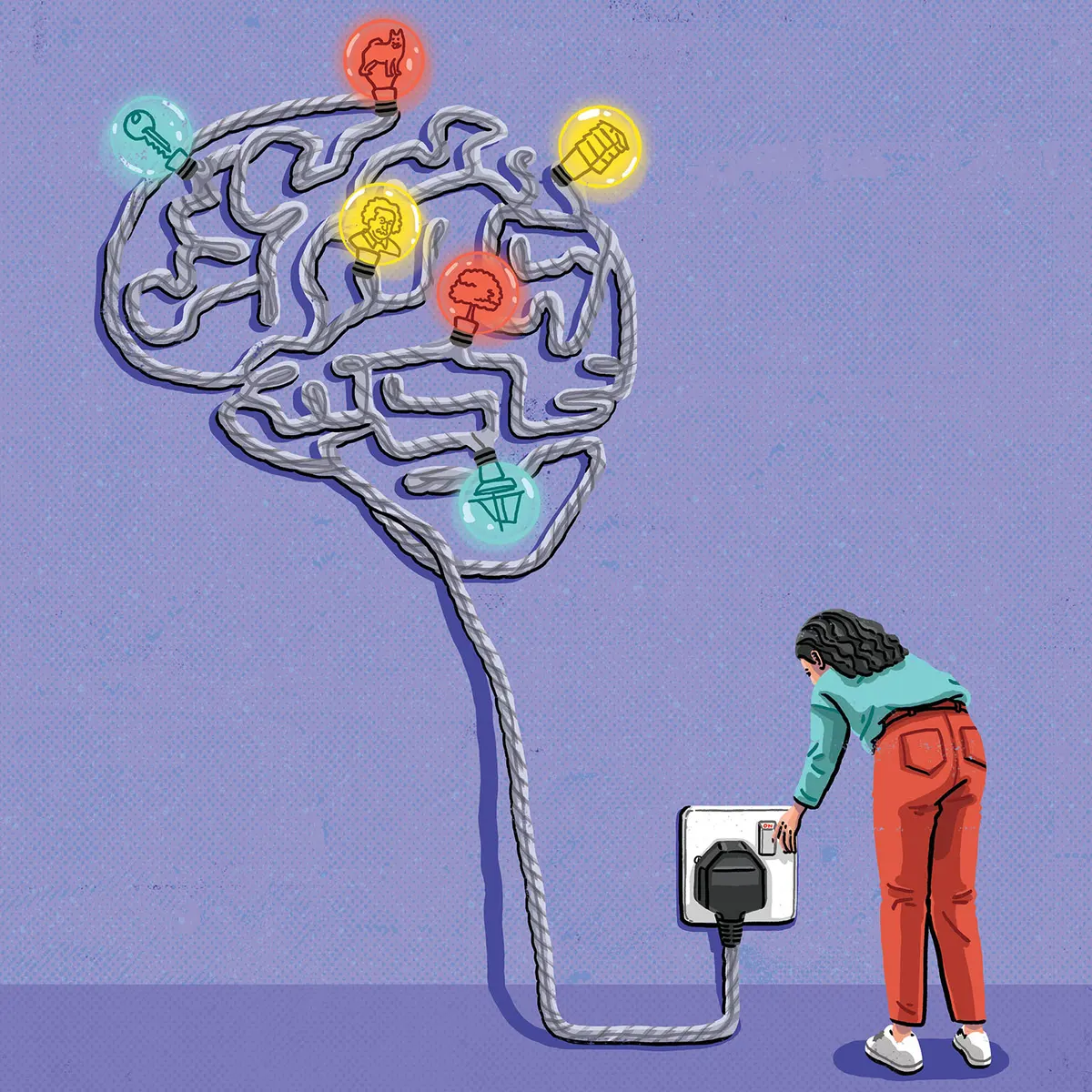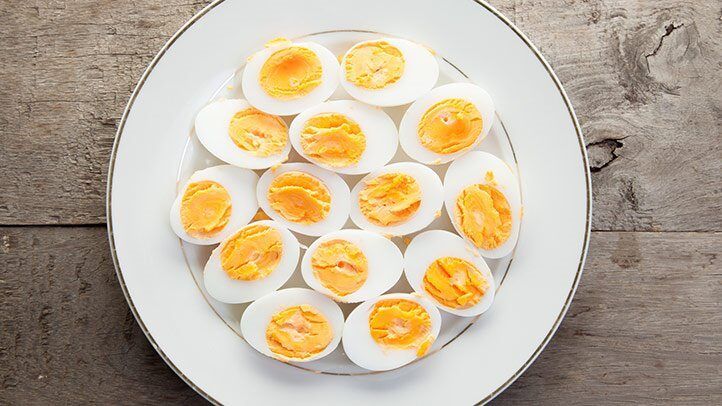
How To Boost Brain Health in Your 30s, 40s, 50s, and Beyond
You’re not alone if you feel like you need more time to remember something as an adult. Forgetfulness is a normal part of aging.
Whether your transient memory loss is caused by multitasking or simply a severe case of menopausal brain fog, there are strategies to lessen the frequency of forgetfulness.
Some simple lifestyle changes below can help you stay sharp as the years go by.
How To Boost Memory in Your 30s
Get Organized
Your brain already organizes the things you remember or have to remember.
One way to boost your memory is to add some organization to your life. Some tips to help you get more structure include:
- Following a daily routine
- Planning out your day
- Making to-do lists
By staying organized, you may be less likely to miss out on important dates and appointments.
Work on Your Sleep
As you get older, your sleep patterns can change. That includes not getting enough sleep or enough quality sleep that you need. (Generally, most adults need at least seven hours of good sleep.)
More About Sleep Quality
Sleep quality refers to how well you sleep. Your sleep quality is better when you:
- Feel refreshed after getting enough sleep
- Can sleep through the night
- Are sleeping without snoring or gasping for air (which are signs of sleep disorders)
You can get better sleep by practicing good sleep habits, like going to bed at the same time every night and having a relaxing bedroom environment.
However, getting good sleep is essential for your memory’s sake. Research has found that sleep can strengthen memories—particularly those considered important to have in the future.
Of note, the ability to benefit from the deep sleep that strengthens memories starts to decrease as you approach your late 30s. Still, until you reach that part of your 30s, it can’t hurt to get some good quality sleep.
Make Some Nutritional Adjustments
Eating or eliminating certain foods won’t stop issues with cognition. However, some foods may help you with your memory, like:
- Dark green leafy vegetables
- Berries
- Peanut butter
- Whole grains
Another specific component to have in your diet is docosahexaenoic acid (DHA). DHA is an omega-3 fatty acid found in salmon, trout, and some fortified foods such as yogurt.
It’s a super saver for your memory, as it can help with episodic memory.
Improving Your Memory in Your 40s
Try Out Some Kids’ Toys
There’s a version of that Rubik’s Cube that you loved as a kid—the 3-D-like Rubik’s 360. It’s probably good for brains of any age because it sharpens flexible problem-solving skills, said neuropsychologist Karen Spangenberg Postal, Ph.D., former president of the Massachusetts Psychological Association.
As you play, you would likely be working on your:
- Memory
- Strategy
- Spatial skills
These are all required for improving brain health. But what if you always found the Cube endlessly frustrating? No worries: Any game that stretches your thinking is helpful.
Get Some Exercise
Elevating your heart rate three times a week for 20 minutes, even just by walking, bathes your brain in oxygen and helps it grow new cells.
“Aerobic exercise is two to three times as effective as any known brain-training activity,” said Sam Wang, PhD, professor of neuroscience at Princeton University and co-author of “Welcome to Your Brain: Why You Lose Your Car Keys but Never Forget How to Drive and Other Puzzles of Everyday Life.”
Research has also shown that aerobic exercise had a positive effect on executive function (which includes working memory). That effect was stronger for participants who were older in age.
Play Card Games
Card games may be helpful for an improvement in your memory. For example, you might consider playing a card game like bridge.
“If book clubs bore you and dinner parties leave you exhausted, then maybe a brisk game of bridge is just what the doctor ordered. The combination of strategy and memory in bridge challenges the brain to learn new information and exercises cells so they don’t die,” said Dr. Postal.
Plus, socializing while playing cards adds a level of unpredictability that gives your brain a charge—something solo games don’t offer. Bridge is definitely on the comeback, so you can learn to play through a community college or continuing education program or hire a private instructor for lessons.
Manage Stress
While stress may not always be avoidable, it may be helpful to find ways to reduce stress if possible.
A study published in 2019 looked at the relationship between stress and cognitive function. The researchers found that middle-aged women who had experienced more stressful events within a year of the study showed more issues with verbal memory.
Some stress relief activities might include:
- Going for a walk
- Cuddling with your pet
- Doing breathing exercises or meditation
If the stress is too much, you might also consider talking with a mental health professional for other stress-reducing strategies that might help.
How To Boost Memory in Your 50s and Beyond
Socialize With Others
Researchers have found that both loneliness and social isolation can put people at higher risk for memory and cognition issues.
Loneliness vs. Social Isolation
Loneliness relates to feeling alone or separated, while social isolation refers to not having a lot of people to socialize with on a regular basis. The two can be connected, but they are not the same. For example, you can feel lonely when you’re around others.
If you find that you’re spending a lot of time alone or don’t have a lot of people to talk to, consider scheduling time with family or friends or trying a group exercise class. You might also be interested in:
- Adopting a pet
- Restarting a hobby
- Joining a community or support group
Play Electronic Games
Playing games on consoles like the Wii or a brain-exercise game may not be the first thing you might think about doing.
But, engaging in these activities may even be good for you since simply trying something new gets your brain juiced, said neuropsychologist Reon Baird-Feldman, Ph.D., of the Long Beach Memorial Medical Center.
Novelty refers to experiencing or interacting with something new or different, and novelty has been associated with stronger memory. “When that something new is a video game, you’ll stimulate different parts of the brain that you don’t normally use on a day-to-day basis,” said Baird-Feldman.
If video games are too techy for you, play along with Wheel of Fortune or Jeopardy! on TV, said Baird-Feldman. Challenge your know-it-all partner to make it more fun.
Engage in a stimulating activity
Other than video games or playing along with game shows at home, just engaging in any mentally stimulating activities may help with your memory or forgetfulness.
Researchers of an International Journal of Lifelong Education longitudinal study tested how different activities might affect participants’ cognitive abilities. They focused on memory and verbal fluency (tasks related to verbally recalling information) for individuals aged 50 and older. The activities included:
- Education and learning courses
- Books or other print materials
- Crossword puzzles
- Chess and card games
The researchers, found after four years of doing any of the activities, the participants experienced a delay or reduction in the decline of their memory or verbal fluency.14
Be Careful With Medications
If you ache every time you work out and never sleep well due to night sweats, you may take medicines to help you get relief. But be careful: Some medications have memory loss as a side effect.
How much is unknown, but you’re probably familiar with the next-day grogginess. The medicine known as diphenhydramine (found in many allergy medications and nighttime pain pills) has an “anticholinergic” effect. That means it blocks communication between nerve cells—which can result in cognitive issues.
Talk with a healthcare provider about other remedies like relaxation or cognitive therapy for sleep problems.
Other Ways To Boost Memory
There are several other ways to help you with your memory and reduce forgetfulness. Some things to consider doing are to:
- Not start or quit smoking
- Tap into your creativity
- Put items you need in the same place every time
- Limit drinking
- Volunteer in the community
- Use calendars or notes as reminders
- Learn something new
- Take care of your overall health


